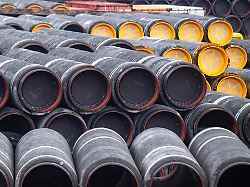Second largest occurrence in Europe
Gas from Ukraine – German “energy joker”?
By Andrea Sellmann and Mary Abdelaziz-Ditzow
09/29/2022, 3:41 p.m
Ukraine is a big player when it comes to gas: the International Energy Agency estimates that there are 5.4 trillion cubic meters of natural gas deep under the territory where the war with Russia is currently raging. According to estimates, Ukraine’s gas reserves would be sufficient to cover its own needs for the next 180 years.
“That is possibly also one of the reasons for the fight for these areas,” states Eastern Europe expert Andreas Umland in the ntv podcast “Wirtschaft Welt & Weit”. With its own gas reserves, Ukraine would be a “potential competitor for Russia as a gas supplier in Europe,” explains Umland, who, as an analyst at the Stockholm Institute for East European Studies, keeps an eye on the situation in Ukraine. Crimea, which includes gas reserves, was annexed by Russia eight years ago.
In practice, however, investors are needed to be able to develop the gas deposits. That was difficult even before the war: a decade ago, the energy giant Shell wanted to invest billions in building the appropriate infrastructure in eastern Ukraine. But the pro-Russian separatists, who began fighting for the union with Russia in 2014, caused the group to abandon its plans.
Insurance for investors?
In the “Wirtschaft Welt & Weit” podcast, Umland discusses the economic relations between Germany and Ukraine with Reinhard Houben, the economic policy spokesman for the FDP parliamentary group – provided that Ukraine can eventually win the war. The politician is certain that this will not happen on the battlefield: the war will only come to an end when the elites around Putin give in. Then one would also have to debate to what extent Russia should be held liable for the damage. For Houben, Russia as the aggressor is “the number one contact.”
For investors, Umland, a Ukraine expert, fears that the situation will remain difficult even if a peace agreement is reached. He therefore believes that special insurance policies that cover political risks are a good idea to encourage foreign investors to enter Ukraine.
Possible potential can also lie in the hydrogen business. After all, Ukraine already has pipelines and huge natural gas storage facilities that could be harnessed for hydrogen. Blue hydrogen, for example, is produced from natural gas, but with savings in CO2 emissions, and is therefore traded as a bridging technology to new energies. That could also be an advantage for us in Germany.
What does Germany have to do in order to still play an important role in the economic world of tomorrow? Who are we dependent on? Which countries benefit from the new world situation? Mary Abdelaziz-Ditzow discusses this in the ntv podcast “Wirtschaft Welt & Weit” with relevant experts.
You can find all episodes in the ntv app or wherever there are podcasts: at AudioNow, Apple Podcasts, Google Podcasts, Spotify, Amazon Music or deezer. For all other podcast apps, you can use the RSS feed.
